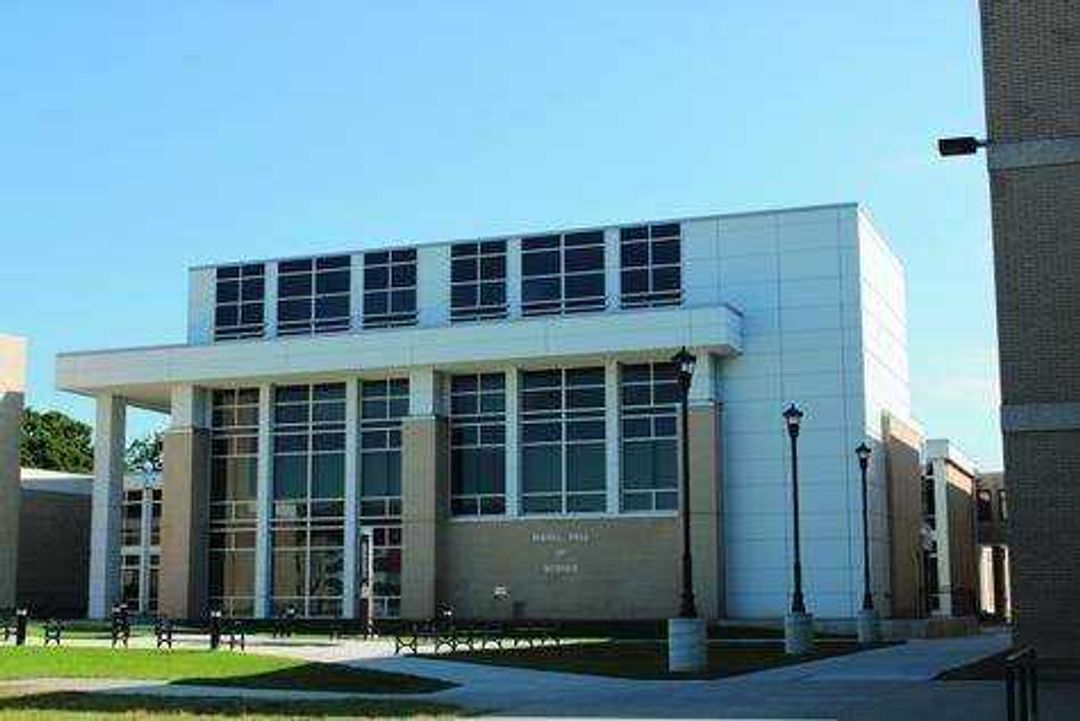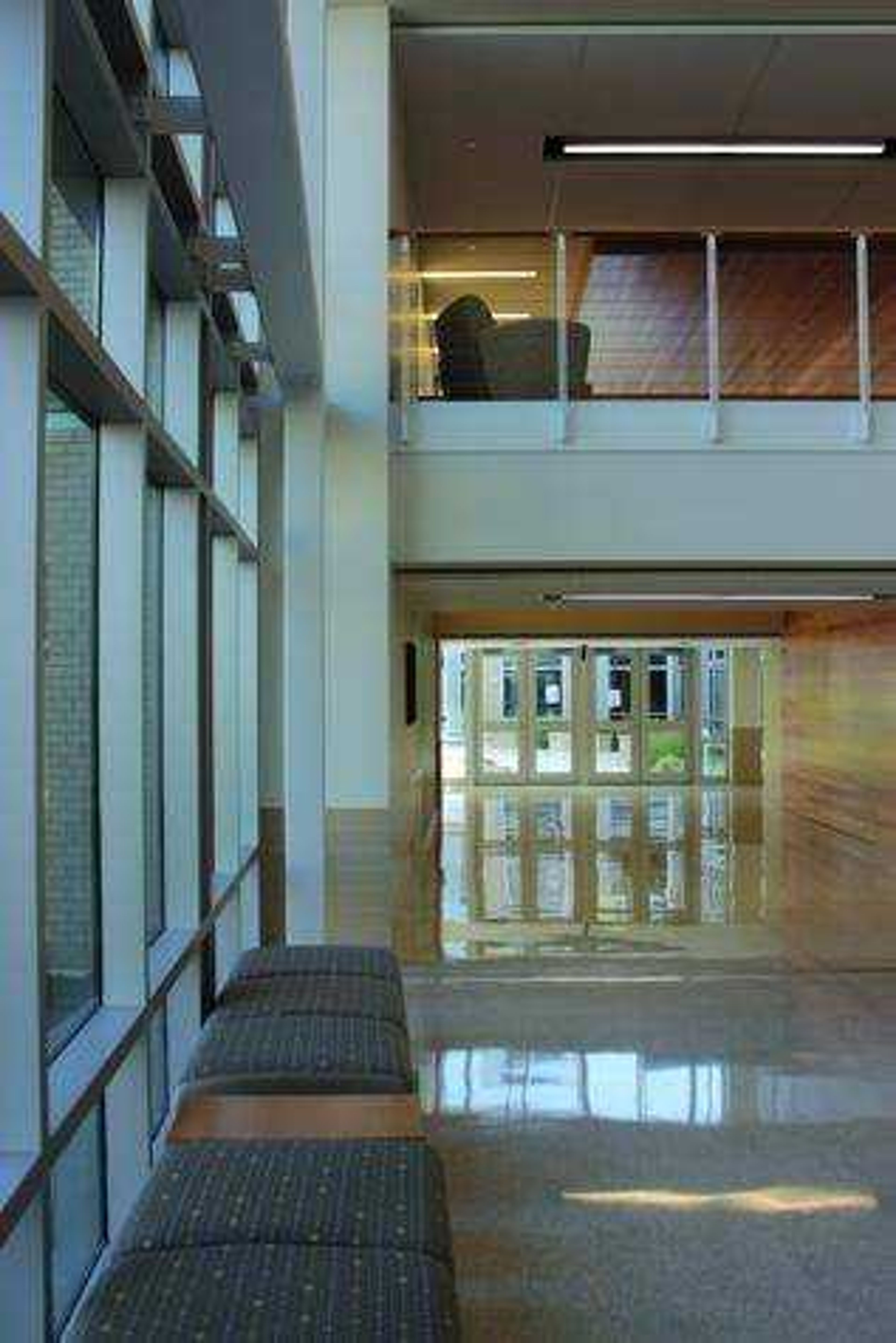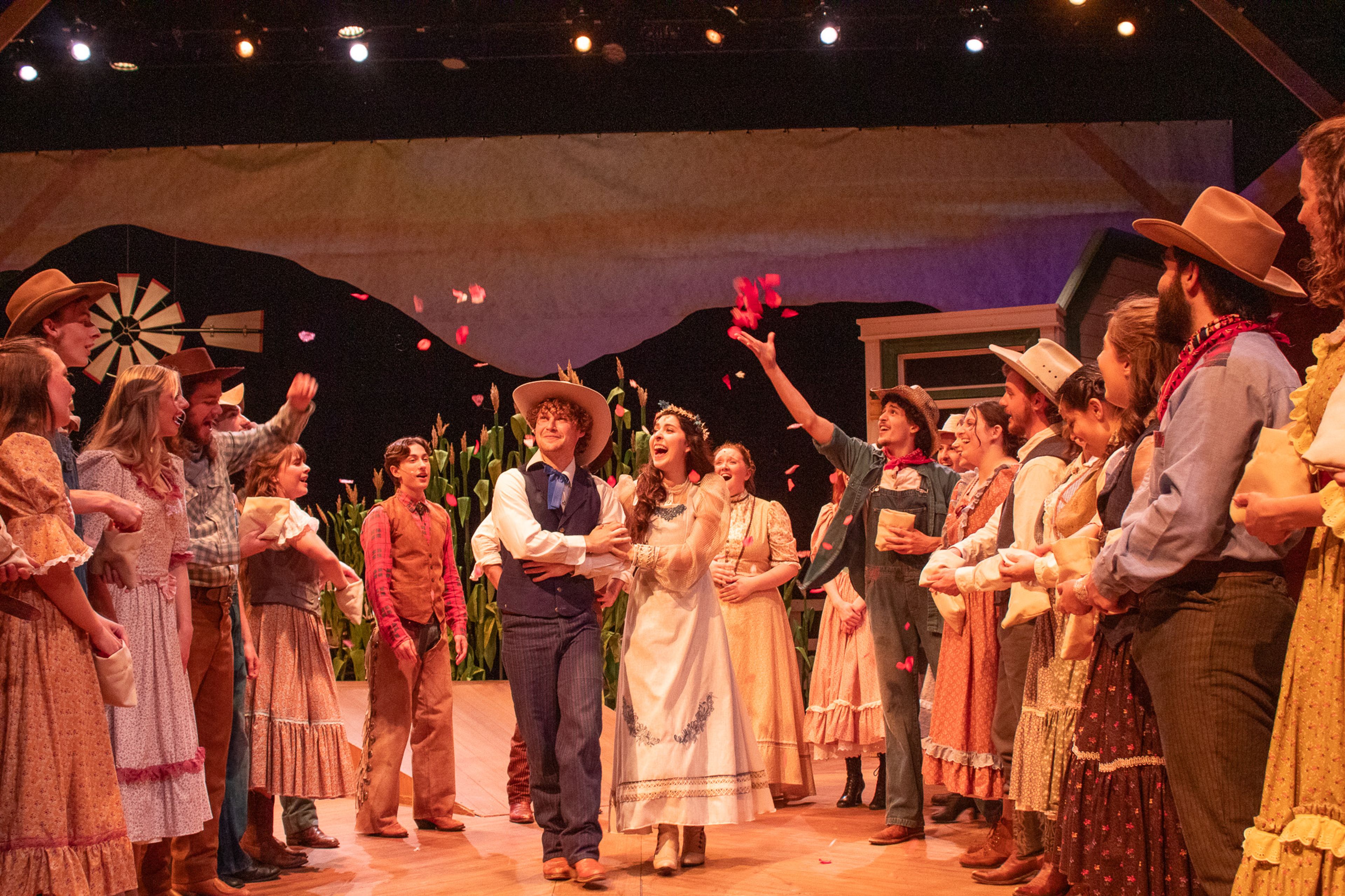After long wait, new Magill Hall renovations are now complete
Southeast Missouri State University's campus has had a hoard of construction and seemingly endless fences encompassing it for the past few years, but this semester students have been treated to the finished project that is Magill Hall. The Department of Science and Agriculture now has a new state of the art building for its students and faculty. With $22 million in renovations, students are now receiving an education with brand new technology and vastly imporved equipment...
~Two years of construction and $22 million has been put into the Magill project
Southeast Missouri State University's campus has had a hoard of construction and seemingly endless fences encompassing it for the past few years, but this semester students have been treated to the finished project that is Magill Hall.
The Department of Science and Agriculture now has a new state of the art building for its students and faculty. With $22 million in renovations, students are now receiving an education with brand new technology and vastly imporved equipment.
According to Dr. Chris McGowan, professor and dean of Southeast's College of Science, Technology and Agriculture, the renovations were originally meant to take a longer amount of time,
"We had a mechanism in place to do one or two rooms a year, but the president [of the university] decided that that would take too long - so we sold bonds to pay for the project," McGowan said.
Construction was funded with $18 million in bonds and an additional $4 million was awarded via grants through the National Science Foundation and the U.S. Department of Education - Title 3. Another grant was awarded through the National Institute of Justice, which helped to provide the much needed new forensic lab equipment.
"It gives us [students and faculty] much safer working conditions in laboratories," McGown said. "I'm very happy, we got all the major design elements that we wanted."
Between both the three-story addition on the north side of the building and the overall renovations the project took a combined two years to finish.

The life science labs were completely redesigned with new equipment and restructured to comply with the Occupational Safety and Health Administration standards along with the Americans with Disabilities Act accessibility guidelines.
In addition to the life science labs being remodeled, the animal biology, plant biology and biology education teaching labs all received Smart Boards and other needed new equipment.
With renovations made to both the interior and exterior, Magill Hall is actually expected to save money for the university, according to McGowan.
"Before this year Magill was the most expensive building on campus to operate," McGowan said. "We expect to save a considerable amount of money on the electricity bill. Before we had all these hoods in the building that the building was never designed to handle. We designed the building to conserve hot and cold air."
Throughout the construction, portions of the building were left open. This allowed classes to continue for students and faculty all while renovations continued. The first year of construction was dedicated to the east half of the building, while contractors concentrated on the west half the second year.
For Southeast students like senior Hailey Lowery and sophomore Aryssa Stoecklin, the renovations have dramatically changed Magill Hall for the better.
"The renovations have made Magill an overall better learning environment with both the larger classrooms and newer labs," Lowery said.
According to biology major Stoecklin, the new looks have sold her on the renovations success.
"I like how there's more light and it's got a modern look," Stoecklin said. "For science majors there's a lot more updated technology. Not to mention the classrooms are more open."
Students are not the only ones loving the new Magill Hall.
"The Magill renovations allow me to use technology that was not available in the old facility," assistant professor of Biology Dr. Michael Taylor said. "This has opened up novel ways of teaching my courses, including learning through discovery and analysis of real world data."





